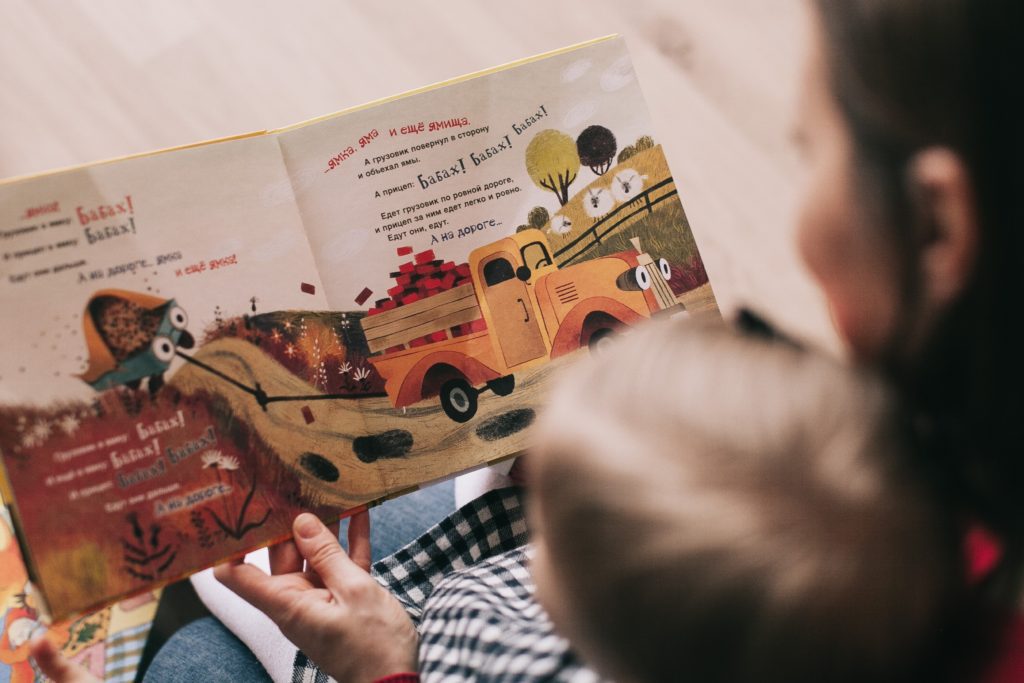I first learned about ADHD when I was in college. I tutored elementary aged African-American children in the inner city of East St. Louis, Illinois. Two of the children I tutored had Attention Deficit Hyperactivity Disorder (ADHD). They were in a daze and not engaged. It bothered me to see children who should be vibrant, laughing, and giggling be completely disconnected.
I asked my team leader why the children were in a trance. She told me they had ADHD, and the medication caused them to be that way. Out of ignorance, I just said okay, and tutored them the best I could. I never thought of ADHD again.
My Personal Experience
Eight years later, I gave birth to a bouncing baby boy: a high-spirited, energetic, and smart fireball. My son did not like bedtime until he was four years old. He would make animal shadows with his hands for hours while lying in bed. He loved learning and would tell fascinating superhero stories for hours on end.
While in first grade, his teacher voiced concern about his progress. She said he was easily distracted and unable to stay seated. I was confused because when we did schoolwork at home, he answered questions correctly and was focused. I took off work to visit his school and observe his behavior, and I was really shocked.
After school, I let him know it was very important that he stay seated in school and stay focused on his teacher.
Coincidentally, the following week he had his annual audiologist appointment due to constant ear infections. The audiologist was concerned and asked for his ENT to review the test results.

Hearing Impairment Diagnosis
At the age of six, my son was diagnosed with a hearing impairment. I immediately thought, “Oh, he cannot hear–that is the reason for his behavior.” Due to the school district having no experience with hearing impaired children, I placed him in a private school for deaf and hard-of-hearing children.
I received a call from the principal saying he’s easily distracted, unable to stay seated, and taking his hearing aids out. She assured me that it was perfectly normal for children to take their hearing aids out when they first get them. However, she wanted to talk about the possibility of him having ADHD.
I immediately thought of the two children I tutored. I was not going to allow a drug to suck the joy out of my son. He was a well-behaved, respectful, and kind kid.
What Exactly Is ADHD?
As many as 1 in 10 U.S. children have Attention Deficit Disorder (ADD or ADHD).
ADHD is a very complex and misunderstood neurological disorder that affects the part of the brain that helps us plan, focus on, and execute tasks. ADHD can vary based on sub-types: inattentive, hyperactivity, or combined.
Through the website ADDitude, I learned about the diagnosis process and made sure my son went through the entire measure. Several different professionals are qualified to diagnose ADHD including psychiatrists, psychologists, psychotherapists, and neurologists. Most pediatricians diagnose ADHD as well.
When I spoke to my son’s pediatrician, she gave me the NICHQ Vanderbilt Assessment Scale which included an assessment for me, his father, and his teacher. She also explained the stimulant vs. non-stimulant medication options.
Accepting the Diagnosis
His father and I had intense conversations around medicating our son; we were both against it. Both of us did not believe that a piece of paper could truly give an accurate diagnosis of our son. We decided to schedule an appointment with a psychiatrist.
The psychiatrist was phenomenal. She asked that every immediate family member attend a family session with her. My son’s father, my son’s stepmother, and I sat in her office while she asked us questions about our son from as early as two years old. She met with our son as well.
It was eye-opening. She taught us there is nothing wrong with our son. She reassured me that I did nothing wrong while pregnant with him. Although I learned a lot on the ADDitude website, talking with a knowledgeable and compassionate professional made a huge difference.
Book Recommendations
The psychiatrist recommended two books: The Gift of ADHD: How to Transform Your Child’s Problems into Strengths by Lara Honos-Webb, PhD and Super-Parenting for ADD: An Innovative Approach to Raising Your Distracted Child by Dr. Edward Hallowell and Dr. Peter Jensen.
The Gift of ADHD taught me how to advocate for my son. It taught me how to educate other moms and teachers so they will understand my child and show him compassion and kindness.
Many teachers and parents still do not understand ADHD and all the ways it affects young people. It is often disregarded as the child having a difficult time focusing on their work or sitting still. ADHD is so much more, which is why as parents of ADHD children, we have to be well-informed.
Dr. Edward Hallowell, co-author of Super-Parenting for ADD, is a well-respected professional in the area of ADHD. He has ADHD himself and shares his struggles as a child and adult with ADHD. From his book, I was able to tweak my parenting to fit my son’s needs. It was life-changing.
Dr. Hallowell explains that people with ADHD have Ferrari brains with bicycle brakes. His explanation just added another layer of understanding for us. We actually used this analogy to explain ADHD to our son. To a seven year old boy, he thought that was cool. He said, “I have an expensive and cool brain!” His dad and I laughed. We explained that when his brain is going that fast, it is hard to focus and learn in school.
Medication
We eventually made a well-informed decision to allow our son to take medication for ADHD. He was not in a trance, and he was the same joyous little boy we loved. At the recommendation of his psychiatrist, our son participated in group sessions with other children with ADHD to learn coping skills, how to interact with others, and how to manage his emotions.
Children’s Books on ADHD
ADHD has various traits of impulsivity, inattention, hyperactivity, difficulty concentrating, and blurting out. At times, those traits can become disruptive in school, home, and church. To reinforce what his psychiatrist taught during group sessions, she recommended that we read behavior-based children’s books to our son. This helped explain to him the behavior and give him the skills he needed to grow socially.

These books are written by Julia Cook, a former school counselor and teacher. I read these to my son before bedtime as part of our daily reading time.
- Sorry I Forgot to Ask!
- Wilma Jean–The Worry Machine
- I Just Don’t Like the Sound of NO!: My Story About Accepting ‘No’ for an Answer and Disagreeing the Right Way! (BEST ME I Can Be! Book 2)
- The WORST Day of My Life EVER!: My Story about Listening and Following Instructions (. . . or Not!) (BEST ME I Can Be! Book 1)
I also love Please Oh Please Be Patient With Me (Volume 1) by Candice E. Cox, LCSW. I’ve brought this book to my son’s IEP meetings since it was published in 2016.
Being Your Child’s Advocate
As parents, we are our children’s first advocates. By reading The Gift of ADHD (mentioned above), I learned how to pinpoint my son’s strengths and challenges. It also helped me identify and ask for resources for my child at school. Below are my top three tips to help you advocate for your child at school:
- Be well informed. Learn more about your child’s learning and attention differences. Know their strengths and read The Gift of ADHD.
- Build relationships with your child’s teacher, school counselor, and principal. Developing relationships can help create an open line of communication.
- Have daily conversations with your child. My son was not always willing to share his thoughts and feelings about school, especially if he had a rough day. So I would ask the following questions:
- What was the best thing that happened at school today? What was the worst thing that happened at school today?
- Tell me something that made you laugh today.
- Who would you like to sit by in class? Who would you not want to sit by in class? Why?
- Where do you play the most at recess?
These questions give me more insight into his day and leads to us having hilarious conversations. It helps me know what he thinks and feels about school. If anything seems alarming, I can simply call his teacher to discuss the situation.
After the ADHD Diagnosis
I felt a flood of emotions when my son’s principal suggested he had ADHD. Initially, I was overwhelmed about what to do next. If your child’s teacher has suggested that your child may have ADHD, don’t feel rushed to make a decision about treatment. Give yourself some time to process, do some research, learn about ADHD, and look for a professional that specializes in ADHD in children.

Acceptance
When we accepted our son’s ADHD diagnosis, we were able to truly support and nurture him. The more we learn, the more he blossoms. We focus on his strengths. Now that he is thirteen, he understands that his brain is wired differently. He still remembers us telling him that his brain is like a Ferrari with bicycle brakes. He has faced some challenges, but he has overcome them as well.
If your child’s teacher or principal has expressed that he or she may have ADHD, do your research, contact the pediatrician, and take a deep breath. Your bundle of joy is perfect, and you are the perfect parent for your child.
My Interview with Dr. Leesha Ellis-Cox
My fellow Birmingham Mom Collective contributor Dr. Leesha Ellis-Cox is a board-certified child, adolescent, and adult psychiatrist. She has lived and worked in Alabama for the last ten years providing psychiatric services to children and adults.
In addition to working as a full-time physician, Dr. Ellis-Cox is a leading authority on women’s and children’s mental health and is a highly sought-after parenting expert. She has a heart for moms, especially those who struggle with mommy guilt: the nagging sense of inadequacy and constant fear of failing as a parent.
Dr. Ellis-Cox provides us with a clinical perspective of ADHD and answers a few common questions parents have about ADHD:
Is ADHD officially considered a learning disability or not, and if not, why not?
According to the Diagnostic and Statistical Manual of Mental Disorders, Fifth Edition or DSM-5, ADHD is a neurodevelopmental disorder. With neurodevelopmental disorders, formation of the brain’s central nervous system is disrupted secondary to genetics and/or environmental factors such as trauma, nutrition, and toxins. This can lead to difficulties with learning, language and communication, and emotion regulation. Other neurodevelopmental disorders include intellectual disability, specific learning disorders, communication disorders, and Autism Spectrum Disorder.
We now recognize that ADHD has biological underpinnings and is not caused by bad parenting or a poor diet. However, proactive parenting and healthy eating habits are important in the overall management of ADHD. In the education sector, ADHD is categorized differently. For children to receive special education services through the provisions of the Individuals with Disabilities Education Act (IDEA), they must meet the federal and state eligibility criteria for at least one disability category. There are several disability categories including visual or hearing impairment, traumatic brain injury, and speech or language impairment. However, there is no specific category for ADHD. Youth with ADHD typically qualify under the emotional disability or other health impairment categories.
When does ADHD usually present itself?
While ADHD affects individuals across the lifespan, symptoms usually first present themselves when children enter preschool or elementary school. School days require listening, concentration and focus, interacting with others outside of parents and siblings, remaining seated, rule following, and many other tasks with which children with ADHD often struggle. Symptoms also occur in multiple settings like home, school, church, and during recreational activities.
How does one diagnose ADHD especially since there has been not much change over time given the complexities of ADHD and the brain itself?
Physicians (pediatricians, family physicians, psychiatrists, pediatric neurologists) and mental health professionals (social workers, psychologists) all can diagnose ADHD. There is no single test used to diagnose ADHD. Even with the growing body of research, there are no blood tests or brain imaging that provides definitive diagnosis of ADHD. ADHD remains a clinical diagnosis.
Professionals complete a comprehensive evaluation that includes obtaining information from multiple sources (parents/caregivers, child, teachers), symptom checklists and rating scales such as the Vanderbilt or Conners scales, vision and hearing screenings, physical examination to rule out medical problems, and assessment for other psychiatric conditions that could mimic the symptoms of ADHD (like depression or anxiety).
What advice would you give a mom that is feeling guilty about her child having ADHD?
Your child’s diagnosis is not your fault. He or she does not have ADHD because of something you did or didn’t do. Stop blaming yourself and beating yourself up. As parents, we know our children better than anyone. But if we see concerning behaviors or a teacher or other professional identifies troubling symptoms, take heed. Sometimes our children need help. Acting early prevents worsening symptoms that might otherwise lead to poor grades, losing friends, loss of confidence and low self-esteem, or even depression and anxiety. Getting your children help is one of the many ways you advocate for their needs, shows them that it’s okay to get help, and demonstrates your love for them.











